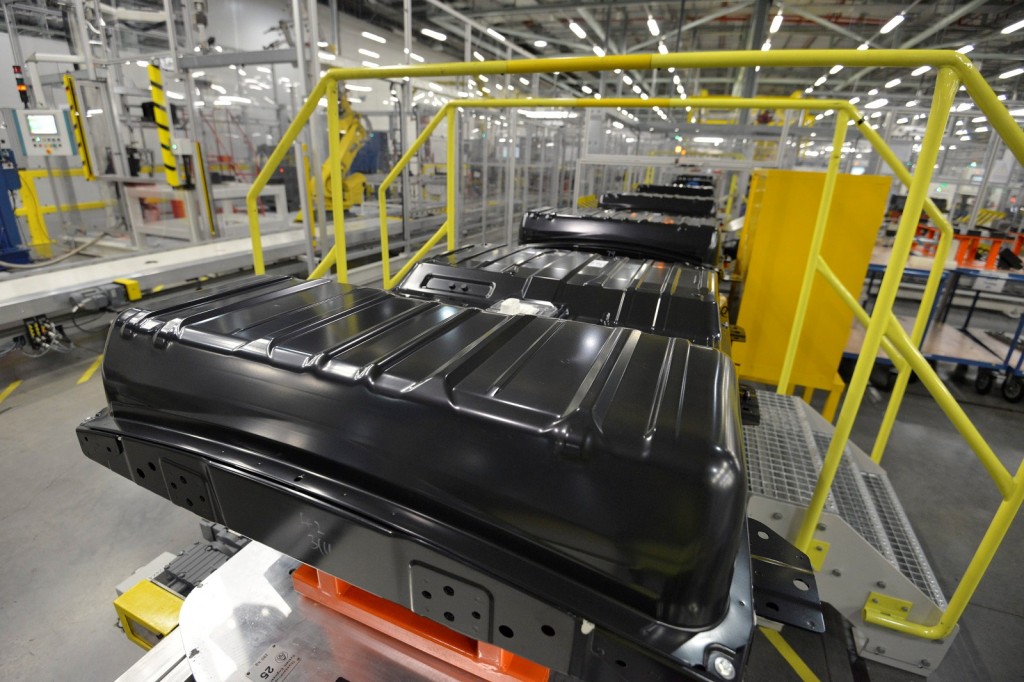Nissan, alone among high-volume electric car makers, owns half of the company that makes the battery cells for its cars.
Tesla Motors doesn't own any of Panasonic, which has supplied all cells to date for its three vehicles (though Panasonic owns a small part of Tesla).
GM doesn't own any of LG Chem, nor does BMW own any of its various cell suppliers.
DON'T MISS: Nissan's Electric-Car Battery Future: Will It Be With LG Chem? (Sep 2014)
But Nissan and Japanese electronics maker NEC jointly own and run Automotive Energy Supply Corporation (AESC), which they set up several years before the first Nissan Leaf went into production in 2010.
Rumors in 2014 suggested that Nissan would look outside AESC for cells to power at least some versions of the second-generation Leaf, perhaps to South Korean supplier LG Chem.
The next Leaf is expected to be unveiled next year as a 2018 model.

AESC lithium-ion cell
Now the other shoe has dropped.
Reports in the Nikkei Japanese business press suggest that Nissan is looking to sell its 51-percent share in AESC to Panasonic or to another electronics company with expertise in cell fabrication and assembly.
The news was broken yesterday by the Nikkei news service, as reported by Reuters late yesterday and updated today. Reuters attributed its story to "two people with knowledge of the matter."
CHECK OUT: Ghosn: Nissan Not Tied To Own Electric-Car Batteries, Will Seek Other Suppliers (Oct 2014)
Panasonic is now one of the three largest lithium-ion cell suppliers to the electric-car industry, with Tesla as the lion's share of its business.
The other two are AESC and LG Chem, whose cells can be found in vehicles from a wide variety of carmakers, including Audi, Cadillac, Chevrolet, Ford, Hyundai, Renault, Smart, Volkswagen, Volvo, and others.
Given its Japanese parentage, AESC would be highly unlikely to be sold to LG Chem, a South Korean company. That leaves Panasonic as the only logical major buyer.

Lithium-ion cell and battery pack assembly for Nissan Leaf electric car in Sunderland, U.K., plant
Sales of the Leaf have been far below projections made several years ago, meaning that AESC likely couldn't reduce its costs sufficiently through economies of scale.
While more Leafs have been sold globally—about 250,000 at this point—than any other plug-in electric car, Ghosn's optimistic projections for electric-car sales will likely take four to six more years to realize.
The first 200-mile Chevrolet Bolt EVs are likely to be delivered between October and December this year, and Tesla says it plans to put its less expensive Model 3 into production by the end of next year.
ALSO SEE: Battery Maker LG Chem: Biggest Electric-Car Winner Of All?
That means that Nissan, which considers itself the pioneer of mass-priced electric cars, finds itself slightly behind the curve in offering an affordable 200-mile electric car, which is likely to take at least another year to reach dealers, perhaps slightly more.
Reducing battery cost may be the single most effective way to make that vehicle compelling enough to boost sales to multiples of their current levels.
Nissan appears to feel LG Chem can offer lower cell prices, as it has apparently done for GM, whose product chief said earlier this year that GM would pay $145 per kilowatt-hour for the cells that go into the very first Bolt EV.

2017 Chevrolet Bolt EV pre-production vehicles at Orion Township Assembly Plant, March 2016
What that means, though, is that dominance in selling electric-car battery cells would be reduced to a two-way race.
Let the games begin.
[hat tip: Brian Henderson]
_______________________________________












